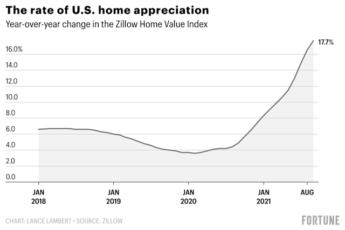The question is: Is it possible? Or is it unlikely? And does it make sense? Let’s discuss both possibilities. Can Philadelphia and New York ever merge? And would it be beneficial? What are the advantages and disadvantages? Read on to find out! The answer might surprise you. It’s pretty simple. Here are some reasons why a merger between Philadelphia and New York might make sense.
Possible
The move by Philadelphia and New York universities to merge may be the catalyst for a massive expansion of the region’s academic offerings. While the two institutions are not yet affiliated, they are located within a short distance. They will have nearly 9,000 total students and more than 400 full-time faculty. The formal search for a partner institution began this summer. Since then, the schools have been working on a complex fusion of operations. This month, both institutions officially completed their merger and received the approval of the Middle States Commission for Higher Education.
The Pandemic has forced many American arts organizations to reconsider their structure and merge. Among them is the San Francisco Conservatory of Music, which purchased Opus 3 Artists last fall, a nonprofit performing arts group struggling in the wake of the demise of venues worldwide. The Philadelphia Orchestra and Kimmel Center have clashed over programming and scheduling, so that a merger could be a boon for both.
In addition to this, the two cities are part of a larger metropolitan area. A consolidated bank would have an undue advantage over smaller competitors. In addition, a compact bank would dominate the commercial banking market in the area and reduce competition. Yet, there is no evidence to support this notion. The merger of two big cities may be the best solution for both. For now, however, the two cities should continue to pursue their separate paths.
Not Likely
The merger of Troutman Sanders and New Orleans Parish isn’t a recent development. It’s part of a long-term trend that is now rapidly extending. Similar consolidations in recent years include the Philadelphia firms of Drinker Biddle and Pepper Hamilton. Philly-based law blogger Sam Wood has been tracking such mergers for quite some time. But it’s not likely for Philadelphia and New York to merge as one big city.
Is it a good idea?
Merging municipalities has many benefits. It enables them to pool their resources and increase their tax base. This makes joining a wise decision, but it is not without problems. The combined government would have to decide on tax rates, employee benefits, and other factors. Municipalities can experience discord when merging, however. One merger plan failed because of disagreements over naming a local library. Another died because elected officials from both cities couldn’t get along.
While Philadelphia consolidation advocates argued that a united Philadelphia would overtake New York in metropolitan supremacy, the city was decades behind. Philadelphia was behind New York in some areas, especially the borough’s financial sector. But after the completion of the Erie Canal in 1825, Chestnut Street began to decline. The dominance of Manhattan was solidified by Andrew Jackson’s attack on the Second Bank of the United States. The North and South clashed over slavery extension, and those who supported annexation adopted a rallying cry.
Although mergers are rare, unions are possible. In Pennsylvania, there are several reasons for doing so. Some states don’t like the idea of combining two large cities. For example, Pennsylvania state law doesn’t allow municipalities to merge. Merging two cities can help Pennsylvania address a problem that a merger may cause: too many «zombie towns.» In addition, unions might allow municipalities to dissolve, which may help towns struggling with budgets. And the more assertive municipalities may have little incentive to merge with a weaker municipality. And even if mergers occur, the cities may be hard-pressed to absorb the burdens of the struggling towns.
If the merging municipalities agree on the terms, the governing bodies of each city must approve the merger or consolidation plan. However, the merger and consolidation process can be stopped if there is opposition to the idea. Municipal consolidations can also be brought about by voter initiative. This can happen only in some instances. For example, Philadelphia may not want to merge with New York City. It’s unlikely any city in New York would vote in favor of a merger.
Does it make sense?
Neither New York nor Philadelphia has a vast population, but both are seeing large numbers of immigrants from the United Kingdom and elsewhere. These people have been redistributed throughout the United States due to the recent recession, making it difficult to see a need for a merger. In addition to the economic factors, Philadelphia enjoys an upward population growth trend. While it’s too early to say whether Philadelphia can catch up to New York in population size, it’s possible.
However, the issue of whether the merger is suitable for patients and the community was a difficult one. Einstein Healthcare Network has argued that a merger will benefit Philadelphia residents, but a federal trade commission challenge has rejected this argument. Insurers say that unions reduce competition. And there are concerns about higher prices for patients. But a recent federal judge rejected this argument, ruling that both hospitals are free to merge, even if their prices rise.
While it’s true that the two cities have very different populations, the overlapping neighborhoods make it difficult to compare the two cities. In the East Village, for example, a public school called P.S. 34 enrolls predominantly Hispanic and black students. The preliminary proposal to merge the two campuses was halted last week, but that didn’t mean the school’s students would be displaced.
There are many reasons to move out of New Jersey. Depending on your situation, you might want to move because of higher property taxes, a better quality of life, or better work opportunities. Moving out of state may also be a good option for older residents who want a stress-free retirement. Listed below are some of the benefits of moving out of state. If you’re considering moving out of New Jersey, do your research first.
Reasons to move out of New Jersey.
A recent survey from United Van Lines found that one in six people is leaving Garden State for better job opportunities. This increase in outbound moves has been attributed to many reasons. While New Jersey residents may have experienced high property taxes, they were tired of the cold winters and the high cost of living. For this reason, people are seeking more affordable states. Here are some reasons people move out of New Jersey:
According to a recent poll by Monmouth University, high property taxes are the most common reason people move out of New Jersey. A higher percentage of Republicans wanted to move out of New Jersey in 2014 than in 2007.
A better job opportunity is the top reason for a move out of New Jersey. New Jersey residents often relocate to warm southern states, like Florida. However, it is not only retirees who can benefit from moving out of the form: 56% of the population is 55 and older, and many choose to relocate to the state for work and to enjoy the sun. Similarly, residents of New Jersey move to other parts of the country to pursue jobs in the tech sector. Sixty-seven percent of moves related to New Jersey were outbound, and 33 percent were inbound. Only Vermont and New Hampshire were excluded from the top ten states for outbound moves.
The COVID-19 Pandemic has also contributed to a spike in outbound moves. As a result, New Jersey has become the state of choice for people who wish to escape a rapidly aging population. For many people, these reasons are more important than money or expenses. After all, most people who moved out of the state were in the highest-income bracket. Moreover, the state’s high cost of living also makes it a less desirable place to live.
In addition to its excellent quality of life, New Jersey has many attractions for residents. Its proximity to New York City makes it one of the most desirable states in the U.S., but the cost of living is not high in every part. Many people choose to relocate outside New Jersey, whether a family has grown too large or because they want to live closer to the ocean. New Jersey may be the best choice if the cost of living is a concern.
Cost of living
When looking for a new place to live, the cost of living is an essential factor. Housing costs, property taxes, and salaries can all affect your decision to move. Here are five significant factors that influence the cost of living in New Jersey. Brand new homes are usually more expensive than older ones, but they have many advantages over older houses. Compared to old homes, brand new places have modern amenities and are maintenance-free.
One of the most significant drawbacks of living in N.J. is the crappy public transportation. You’ll need a car to get around, and public transportation isn’t always reliable. Luckily, there are many ways to reduce your costs while living in N.J. If you get a lower-priced home, you can save monthly money on your expenses. Otherwise, moving out of New Jersey can make life much more affordable.
One of the most common reasons people choose to relocate out of N.J. is the cost of living. NYC has some of the highest rent rates in the country, and you need a high income to afford the cost of living. Rent prices are expected to continue rising, so moving to N.J. is a better option for those who can’t afford the cost of living in NYC. Another reason to move out of NYC is to find cheap rentals and real estate.
Keeping costs low is another reason people leave New Jersey. Rent costs in the state capital are $1,108 per month, while rent in Hoboken is $3,529 monthly. A one-bedroom apartment in New Jersey is priced between $989 and $1,159, but adding a second or third bedroom will increase the rent to $1,432 or even more. According to the Bureau of Labor Statistics, a four-bedroom apartment will cost approximately $2125 monthly.
A higher cost of living can discourage people from relocating. New Jersey’s average cost of living is 1.1 times higher than the national average. As a result, New Jersey ranks 12th in the most expensive state to live in. Fortunately, many people are leaving this high cost of living and are now happy in their new locations. And it’s not just the cost of living making people move out of New Jersey.
Access to other states
In the Northeast, New Jersey ranks #1 and #2 regarding people moving out of state. Of the total number of moves, 60% occurred outside the state, while only 31% were people moving into New Jersey. One potential explanation for this trend is the COVID-19 Pandemic. New Jersey is one of the most heavily populated states in the country, so many people will be left behind by a relocation to a neighboring state.
Climate
When you’re considering moving out of New Jersey, it is helpful to know about its climate. While New Jersey is the smallest state in the Union, it does experience five distinct climate regions, which vary primarily in weather. These climate zones are determined by the state’s geology, distance from the Atlantic Ocean, and prevailing atmospheric flow patterns. The temperature in each area varies throughout the year, and there’s some variation within each region.
Spring or fall are the most comfortable seasons for moving to New Jersey. Temperatures are generally not extreme in these seasons, but if you’re moving in the winter, make sure your car is winterized and equipped to withstand the cold and snow. The state’s public schools are among the best in the country, and its public transportation systems are highly organized. There’s also a wide range of sights and foods to experience while you’re in the state.
Spring brings with it a mixture of rain and warmth. In April, temperatures rise to a moderate 60degF. Then, in May, the climate changes and becomes humid and hot. The temperature will have dropped significantly when you leave the state in early November. Winter in New Jersey can be cold but usually mild and pleasant. You should still be prepared for snow, which doesn’t fall on the ground much.
Despite these negative impacts of the state’s weather, many people opt for an out-of-state move because of its climate. More than half of New Jersey residents moved out of the state for work or respite. Another fifth chose New York as their new home for work. Many New Jersey residents moved out of the state for retirement reasons. However, these numbers are not necessarily representative of all reasons for moving out of the state.







